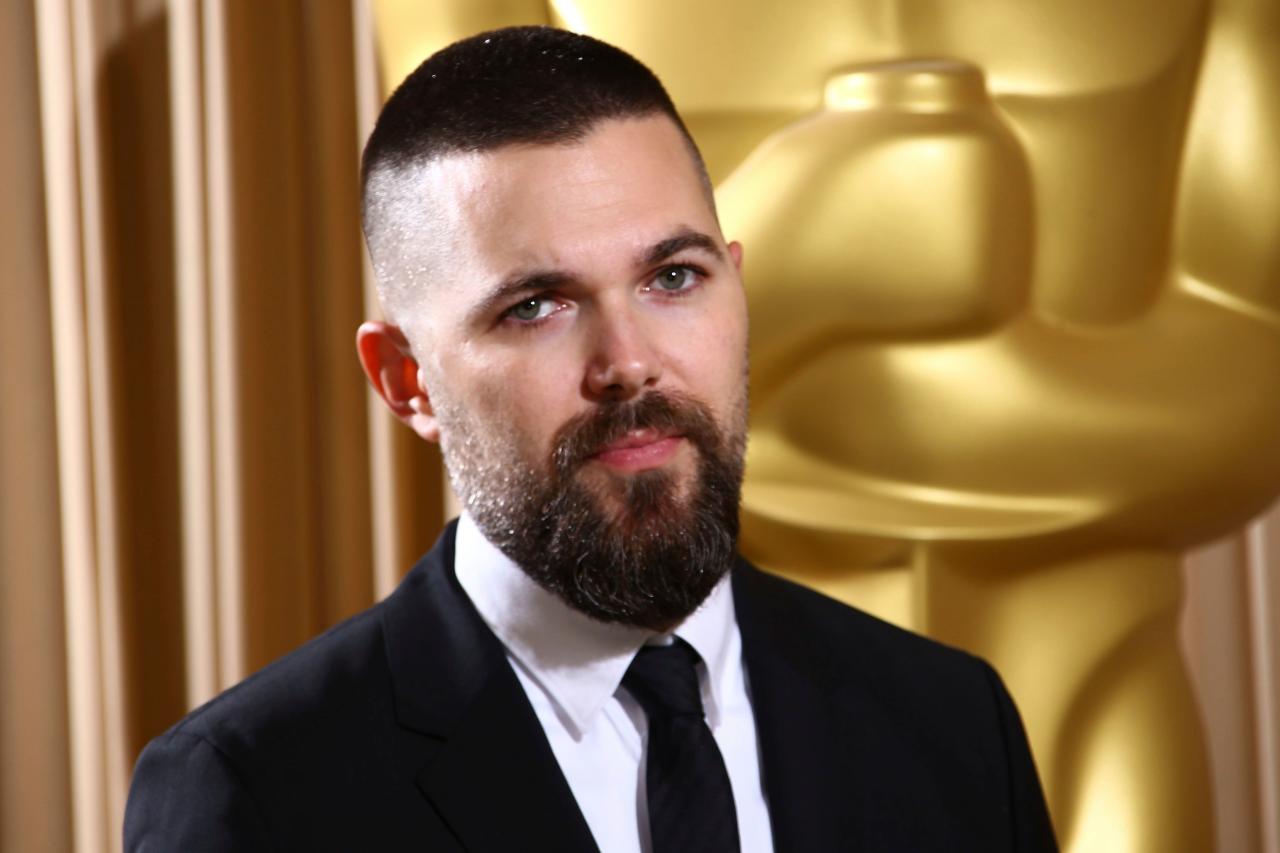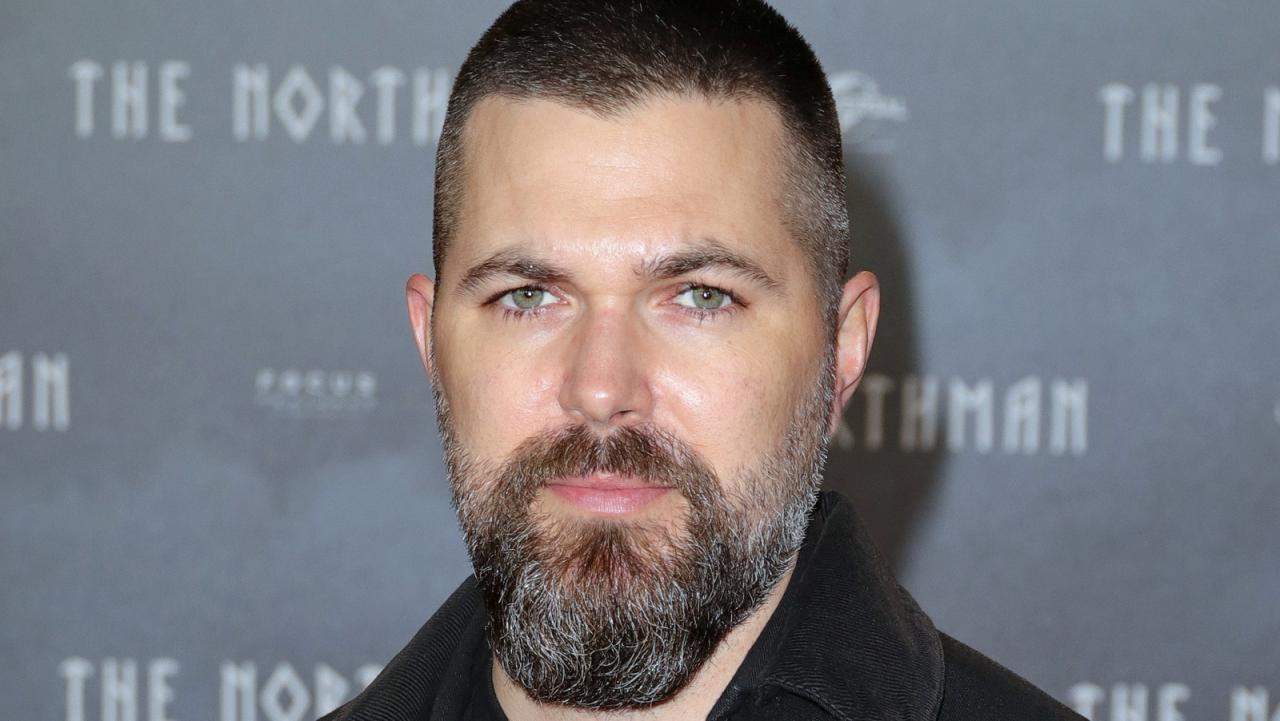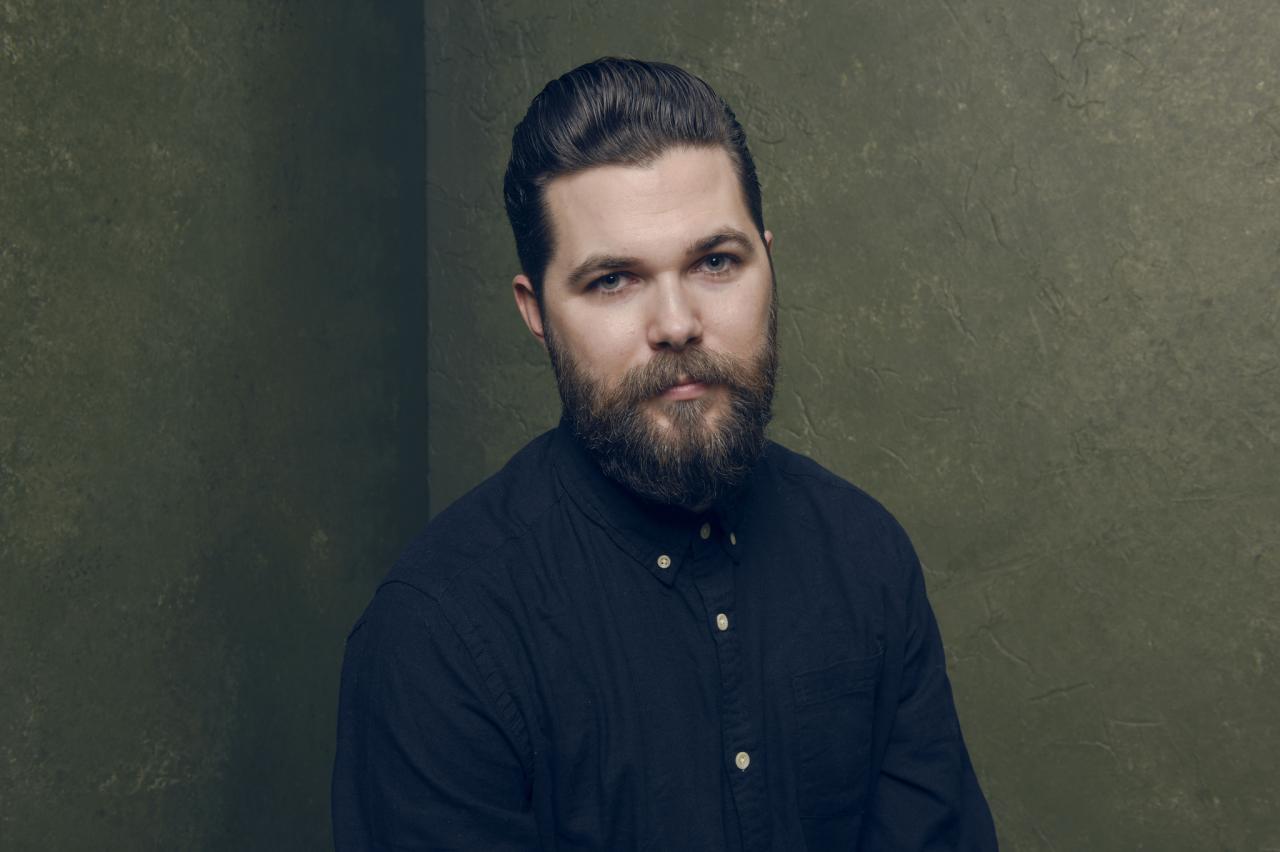Robert Eggers, the visionary director behind The Witch and The Lighthouse, has emerged as a leading force in contemporary horror cinema. His distinctive style, meticulous research, and exploration of historical themes have captivated audiences worldwide, establishing him as a master of his craft.
Eggers’ films are characterized by their haunting atmosphere, unsettling imagery, and exploration of the darker aspects of human nature. He deftly blends historical accuracy with psychological terror, creating immersive experiences that challenge and provoke.
Biographical Sketch
Robert Eggers is an American filmmaker who has gained recognition for his distinctive and atmospheric horror films. Born in Manchester, New Hampshire, in 1983, Eggers developed a fascination with folklore and the occult from a young age. He attended New York University’s Tisch School of the Arts, where he studied film and television production.
Eggers’ breakthrough came with his feature film debut, The Witch(2015), a critically acclaimed period piece set in 17th-century New England. The film garnered praise for its authenticity, haunting atmosphere, and strong performances. Eggers followed up with The Lighthouse(2019), a psychological thriller set on a remote island in the 19th century.
The film received similar critical acclaim for its stunning cinematography, evocative sound design, and tour-de-force performances from Willem Dafoe and Robert Pattinson.
Early Life and Influences
Eggers’ interest in folklore and the supernatural stems from his childhood experiences. He grew up in a rural area where he was exposed to stories of witches, ghosts, and other supernatural beings. These tales left a lasting impression on him and influenced his later work.
Filmmaking Style
Eggers’ films are known for their meticulous attention to detail, historical accuracy, and immersive atmosphere. He often uses natural light and authentic props to create a sense of realism and authenticity. His films also feature a distinctive visual style characterized by long, static shots, muted colors, and haunting soundscapes.
Themes
Eggers’ films often explore themes of isolation, guilt, and the human condition. He frequently depicts characters who are struggling with their own inner demons or the harsh realities of their environment. His films also delve into the complexities of human relationships and the ways in which they can be both destructive and redemptive.
Filmography
Robert Eggers is an American filmmaker known for his critically acclaimed horror films. His work often explores themes of isolation, guilt, and the supernatural.
Here is a list of his films:
The Witch
- Release Date:2015
- Genre:Historical horror
- Synopsis:A Puritan family in 17th-century New England is torn apart by religious extremism and witchcraft.
The Lighthouse
- Release Date:2019
- Genre:Psychological horror
- Synopsis:Two lighthouse keepers on a remote island are driven to madness by isolation and paranoia.
The Northman
- Release Date:2022
- Genre:Historical epic
- Synopsis:A young Viking prince sets out on a quest to avenge his father’s murder.
Eggers’ films are often characterized by their slow pacing, atmospheric cinematography, and use of period-accurate dialogue and costumes. He often explores themes of isolation, guilt, and the supernatural, and his films are often set in remote and unforgiving environments.
Cinematic Style: Robert Eggers
Robert Eggers has developed a distinctive cinematic style characterized by its immersive atmosphere and meticulous attention to detail. His films are often visually stunning, with a rich color palette and evocative lighting that creates a sense of unease and dread.Eggers’ camerawork is often characterized by long, static shots that allow the audience to absorb the details of the setting.
He also frequently uses close-ups, which intensifies the emotional impact of his characters’ performances.Sound design plays a crucial role in Eggers’ films. He often uses ambient sounds and eerie noises to create a sense of tension and suspense. The soundtrack is also an important element, often featuring haunting melodies that contribute to the film’s overall atmosphere.Eggers’ editing is precise and deliberate.
He uses slow motion and jump cuts to create a sense of unease and disorientation. He also often juxtaposes different scenes to create a sense of tension and dread.All of these elements combine to create a truly immersive and unforgettable cinematic experience.
Eggers’ films are not for the faint of heart, but they are sure to leave a lasting impression.
Lighting
Eggers uses lighting to create a sense of atmosphere and dread. His films are often characterized by dark, shadowy interiors and flickering candlelight. This creates a sense of unease and claustrophobia, which is often reflected in the characters’ own psychological states.Eggers also uses lighting to create a sense of the supernatural.
In The Witch, for example, the forest is often bathed in an eerie green light, which suggests the presence of something otherworldly.
Camerawork
Eggers’ camerawork is often characterized by long, static shots. This allows the audience to absorb the details of the setting and to feel the weight of the characters’ emotions. Eggers also frequently uses close-ups, which intensifies the emotional impact of his characters’ performances.In The Witch, for example, the camera often lingers on the faces of the characters, capturing their fear and desperation.
This creates a sense of intimacy between the audience and the characters, and it makes the film’s horrors all the more effective.
Sound Design
Sound design plays a crucial role in Eggers’ films. He often uses ambient sounds and eerie noises to create a sense of tension and suspense. The soundtrack is also an important element, often featuring haunting melodies that contribute to the film’s overall atmosphere.In The Lighthouse, for example, the sound of the waves crashing against the lighthouse is a constant reminder of the characters’ isolation and vulnerability.
The soundtrack also features eerie, dissonant music that creates a sense of unease and dread.
Editing
Eggers’ editing is precise and deliberate. He uses slow motion and jump cuts to create a sense of unease and disorientation. He also often juxtaposes different scenes to create a sense of tension and dread.In The Witch, for example, Eggers uses slow motion to create a sense of dread as the characters are hunted by a witch.
He also uses jump cuts to create a sense of disorientation and to keep the audience on edge.
Historical Influences
Robert Eggers’ films are heavily influenced by historical research and accuracy. He immerses himself in the time periods of his films, studying primary sources and consulting with historians to ensure that every detail is authentic.
Eggers believes that historical accuracy is essential for creating a believable and immersive experience for the audience. He wants his films to transport viewers to another time and place, and he achieves this through meticulous attention to detail.
Incorporating Historical Research and Accuracy, Robert eggers
- Eggers conducts extensive research for each of his films, reading books, articles, and primary sources.
- He also consults with historians to ensure that his films are historically accurate.
- Eggers’ films are often set in remote and isolated locations, which helps to create a sense of authenticity.
Exploring Contemporary Themes Through History
While Eggers’ films are set in the past, they often explore contemporary themes. For example, The Witch(2015) is a film about a family of Puritan settlers who are torn apart by religious extremism. Eggers uses this film to explore the dangers of religious intolerance and the importance of free thought.
The Lighthouse(2019) is a film about two lighthouse keepers who are stranded on a remote island. Eggers uses this film to explore the themes of isolation, madness, and the human condition.
Collaborators
Robert Eggers’ distinctive filmmaking vision has been shaped by his collaborations with a select group of talented individuals. These collaborators have played pivotal roles in crafting the unique atmosphere and storytelling of his films.
One key collaborator is cinematographer Jarin Blaschke, who has worked on all of Eggers’ feature films. Blaschke’s mastery of lighting and composition creates the eerie and immersive visuals that are a hallmark of Eggers’ style. Together, they have crafted unforgettable images that linger in the minds of viewers.
Willem Dafoe
Willem Dafoe has collaborated with Eggers on three films, including The Lighthouseand The Northman. Dafoe’s intense and enigmatic performances have brought depth and complexity to Eggers’ characters. His ability to convey both vulnerability and menace has made him a perfect fit for Eggers’ unsettling and atmospheric films.
Critical Reception
Robert Eggers’ films have garnered significant critical acclaim, with many praising his distinctive cinematic style, meticulous attention to historical detail, and ability to create unsettling and immersive experiences.
His debut film, The Witch(2015), was met with widespread critical praise, with critics commending its atmospheric cinematography, authentic dialogue, and chilling performances. It was nominated for several awards, including the Independent Spirit Award for Best First Feature.
Praise
- Critics have praised Eggers’ films for their realism, their ability to transport viewers to another time and place, and their exploration of dark and disturbing themes.
- Eggers’ films have been praised for their stunning cinematography, which often uses natural light and evocative imagery to create a sense of atmosphere and dread.
- Eggers’ films have been praised for their performances, which are often raw and naturalistic, and for their attention to detail, which creates a sense of authenticity.
Criticism
- Some critics have found Eggers’ films to be too slow-paced and repetitive, and have accused him of being more interested in style than substance.
- Eggers’ films have been criticized for their violence and gore, which some critics have found to be excessive and gratuitous.
- Eggers’ films have been criticized for their bleak and pessimistic outlook, which some critics have found to be off-putting.
Despite these criticisms, Eggers’ films have had a significant impact on the film industry and film criticism. His work has helped to revive interest in historical horror films, and has inspired a new generation of filmmakers to explore dark and disturbing themes.
Awards and Recognition
Robert Eggers has received numerous accolades for his exceptional filmmaking, including Academy Award nominations and British Academy Film Awards. These prestigious recognitions have significantly elevated his profile in the film industry and cemented his status as a visionary director.
Eggers’s accolades not only celebrate his artistic achievements but also serve as a testament to the impact his work has had on audiences and critics alike. His ability to create immersive and unsettling cinematic experiences has earned him widespread recognition and established him as one of the most promising filmmakers of his generation.
Awards
- Academy Award for Best Director (nomination, 2023)
- Academy Award for Best Picture (nomination, 2023)
- British Academy Film Award for Best Director (nomination, 2023)
- British Academy Film Award for Best Original Screenplay (nomination, 2023)
- Sundance Film Festival Grand Jury Prize (2015)
- Gotham Independent Film Award for Best Breakthrough Director (2015)
Significance
Eggers’s Academy Award nominations for The Lighthouseand The Northmanrepresent a significant milestone in his career. These nominations recognize his exceptional storytelling abilities, his mastery of the craft, and his ability to captivate audiences with his unique cinematic vision. The British Academy Film Award nominations further underscore his international recognition and his status as a leading figure in contemporary cinema.
The Sundance Film Festival Grand Jury Prize for The Witchmarked Eggers’s arrival as a major filmmaking talent. This prestigious award launched his career and brought his work to the attention of a wider audience. The Gotham Independent Film Award for Best Breakthrough Director further solidified his reputation as an innovative and promising filmmaker.
Qualities
Eggers’s recognition is a testament to his unwavering commitment to creating authentic and immersive cinematic experiences. His films are characterized by their meticulous attention to detail, their atmospheric cinematography, and their haunting sound design. Eggers’s ability to evoke a sense of dread and unease in his audiences has set him apart from his contemporaries and established him as a master of the horror genre.
Beyond his technical prowess, Eggers’s work also resonates with audiences on a deeper level. His films explore universal themes of isolation, guilt, and the human condition. Eggers’s ability to tap into these primal fears and emotions has made his work both critically acclaimed and commercially successful.
Future Projects
Robert Eggers is a visionary director whose unique style and approach to filmmaking have garnered critical acclaim and a devoted following. As he embarks on his future projects, anticipation is high for what he will create next.Eggers’ upcoming projects include “Nosferatu,” a reimagining of the classic horror film, and an untitled Viking epic.
Both projects promise to showcase Eggers’ mastery of atmosphere, suspense, and historical authenticity. In “Nosferatu,” Eggers is expected to explore themes of isolation, obsession, and the destructive power of desire. The Viking epic, on the other hand, is likely to delve into themes of masculinity, violence, and the clash between paganism and Christianity.
Potential Themes and Styles
In his future work, Eggers is likely to continue exploring themes that have been central to his previous films, such as isolation, guilt, and the supernatural. He is also likely to continue experimenting with different genres, as he has done with “The Witch” (horror), “The Lighthouse” (psychological thriller), and “The Northman” (historical epic).Eggers’ unique visual style is characterized by its use of natural light, long takes, and evocative sound design.
He is also known for his meticulous attention to detail and his ability to create immersive and unsettling worlds. These elements are likely to be present in his future projects as well.
Impact on the Film Industry
Robert Eggers is one of the most exciting and innovative directors working today. His films have been praised for their originality, artistry, and ability to challenge audiences. As he continues to make films, he is likely to have a significant impact on the film industry.
Eggers’ work is pushing the boundaries of what is possible in cinema, and he is inspiring a new generation of filmmakers to create bold and ambitious films.
Final Summary
Robert Eggers’ unique approach to filmmaking has earned him critical acclaim and a dedicated following. His films have been praised for their originality, artistry, and ability to provoke deep thought and emotion. As he continues to push the boundaries of the horror genre, Eggers is poised to leave an indelible mark on the cinematic landscape.
FAQ Explained
What is Robert Eggers’ signature style?
Eggers’ style is characterized by its meticulous historical research, haunting atmosphere, and exploration of the darker aspects of human nature.
What are some of Robert Eggers’ most notable films?
Eggers’ most notable films include The Witch (2015) and The Lighthouse (2019).
What is Robert Eggers’ upcoming project?
Eggers’ upcoming project is Nosferatu, a reimagining of the classic horror film.



